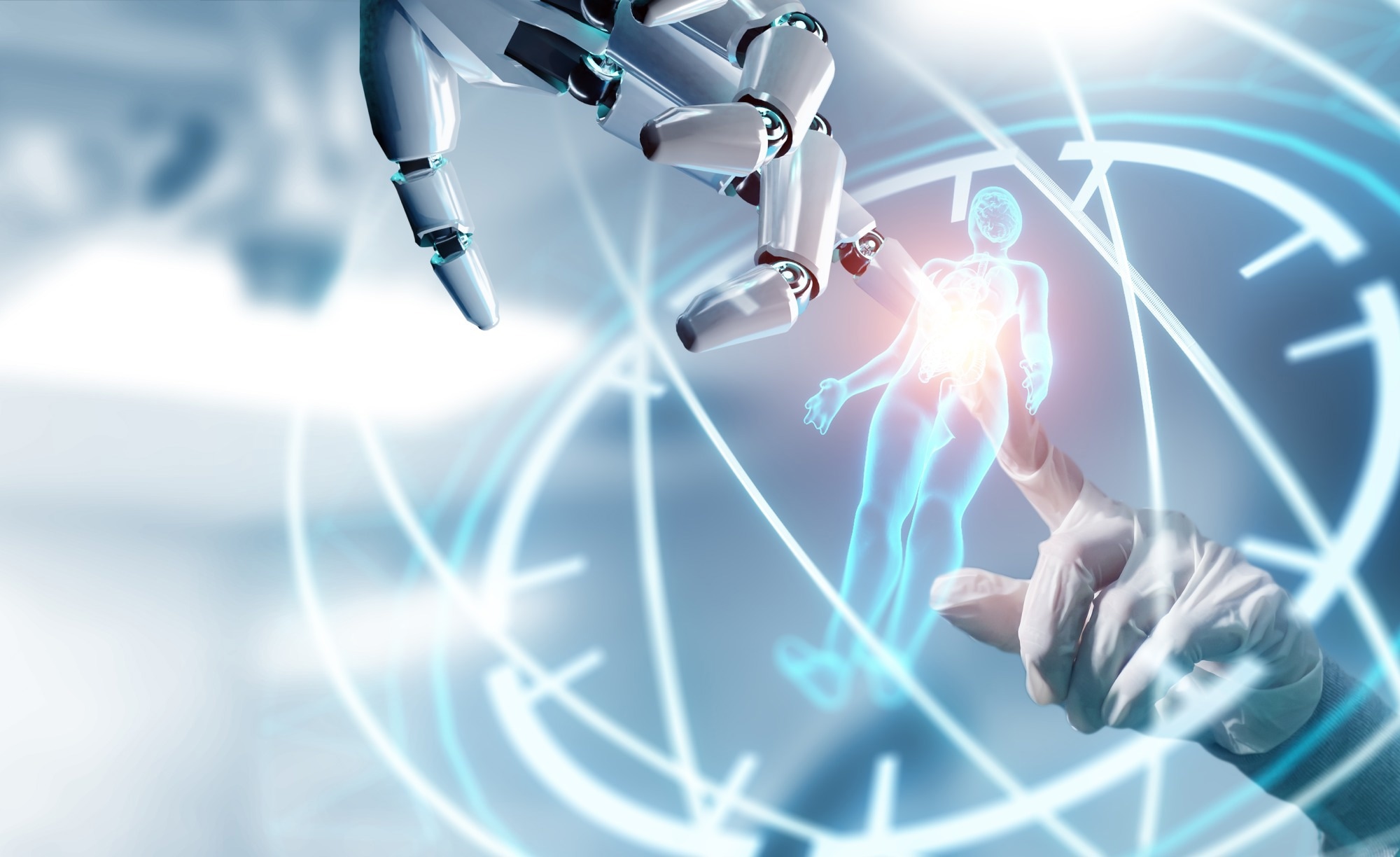In an article published in the journal Ergonomics, the authors discussed the emerging issues and debates within the human factors and ergonomics (HFE) field regarding automation, artificial intelligence (AI), and robotics.
 Study: Debates, Controversies, and Knowledge Gaps in Automation, AI, and Robotics. Image credit: Have a nice day Photo/Shutterstock
Study: Debates, Controversies, and Knowledge Gaps in Automation, AI, and Robotics. Image credit: Have a nice day Photo/Shutterstock
Current technological advancement trends
Although technology has witnessed constant progress in the past decades, some notable breakthroughs have been achieved in the last 12 months, specifically in AI. The introduction of AI-based image generators, such as Midjourney, and large language model-based chatbots, such as Open AI’s ChatGPT, have significantly increased public interest and attention. For instance, Midjourney gained attention when it was utilized to generate the winning entry in the annual art competition of the Colorado State Fair.
Automation and AI have not remained limited to industries such as autonomous shipping or advanced manufacturing, as their direct use is increasingly becoming a standard for the general public, students, and workers. For instance, San Francisco community members could recently hail General Motors Cruise-operated robotaxis on public roads with no onboard safety driver. However, a number of safety incidents have later resulted in the suspension of testing permits.
Importance of HFE
Several efforts have been made toward the implementation of new regulations for AI. For instance, the European Union (EU) member states are currently negotiating about the AI Act details. This Act aims to ensure that AI-based systems are environmentally friendly, non-discriminatory, traceable, transparent, and safe.
Additionally, the Bletchley declaration signed recently by the EU and 28 countries affirmed that for the collective benefit of society, AI must be used, deployed, developed, and designed in a safe, trustworthy, responsible, and human-centric manner. The success of these endeavors hinges critically on the vital contributions of HFE.
Although automation can potentially solve different problems, it can also introduce new issues as operators lose the capacity and skills to intervene when the automation fails. This aspect is typically referred to in HFE in response to growing efforts to develop fully automated systems that do not require human intervention, including AI-based systems and their embodiment within robotic technologies. Thus, understanding the current debates, controversies, and knowledge gaps relating to AI, automation, and robotics is necessary to facilitate future HFE developments to mitigate the emerging automation challenges.
Knowledge gaps, debates, and controversies
Reliance and trust in automation, human-AI collaboration, user interface design, ethical considerations, training and skill development, and psychological and behavioral aspects are the general trends and discussions within the HFE field regarding automation, AI, and robotics.
Knowledge Gaps: In human factors, robotics- and AI-related ethical issues include ethical implications of autonomous system-made decisions, privacy concerns, and algorithmic bias.
Research is ongoing to understand how users can develop trust in automated systems and how the trust influences their reliance on automation. The trust dynamics are complex and depend on user experience, system reliability, and transparency.
User interface designing for complex systems consisting of robotics and AI requires a thorough understanding of how users interact with and perceive the technology, including issues related to decision-making support and information presentation. Studies are also being performed to investigate how humans can collaborate with AI systems effectively, which involves understanding the optimal task division between AI and humans and designing interfaces for seamless collaboration.
Understanding how to provide training to individuals to enable them to effectively work with automated systems is another key research area, which involves evaluating the training program's impact on user performance, overall system understanding, and situation awareness. Moreover, exploring the behavioral and psychological human-robot interaction aspects, including user attitudes and preferences, and the emotional impact of interacting with robotic and AI systems are also essential.
Debates: An ongoing debate exists about the appropriate automation level in different domains. Ensuring a proper balance between automation and human control to optimize safety and performance is challenging. The potential effect of AI technology on job roles and whether automation will create complementary, new roles or lead to job displacement are also being discussed.
Discussions are also focusing on the most valuable skill types in an AI- and automation-dominated future, which include debates on the role of training and education in preparing individuals and on the role of emotional intelligence in machines to improve human-machine collaboration.
Controversies: Balancing the comprehensive information requirement with the information overload risk is a major point of disagreement. Designing interfaces that can offer necessary information without overwhelming the user is a significant challenge. Additionally, debates are ongoing regarding the ethical responsibilities of organizations, engineers, and designers in ensuring that automated systems are unbiased, transparent, and fair.
In conclusion, HFE can effectively understand the potential impacts of automation, AI, and robotics in society and the workplace. However, understanding the debates, controversies, and knowledge gaps concerning automation, AI, and robotics is essential to inspire future developments in HFE.